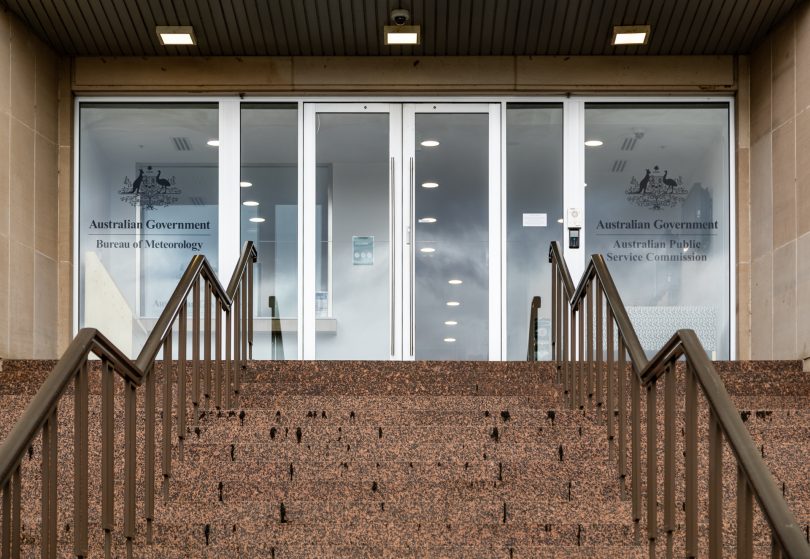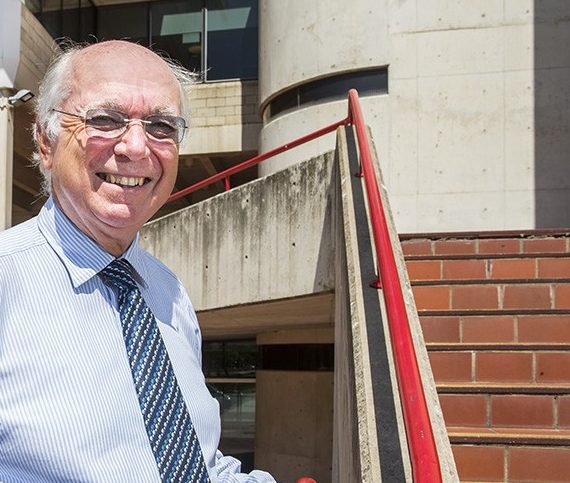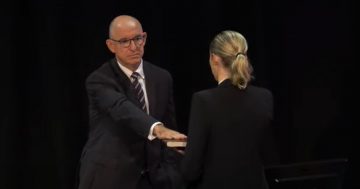
Andrew Podger says the Australian Public Service Commission needs to be strengthened to protect senior staff. Photo: Michelle Kroll.
Andrew Podger has called for greater protection for senior bureaucrats who speak truth to power to bolster the credibility of the public service.
In his report to the Royal Commission into the Robodebt Scheme, the former Australian Public Service commissioner highlighted a culture in the APS where too many department bosses were afraid to give quality advice they feared their ministers didn’t want to hear.
It is a culture where bureaucrats fear losing their jobs and an illegal program like Robodebt was allowed to continue.
He said secretaries and other senior public servants must be protected from bullying ministerial staff running interference for political masters.
Professor Podger suggested that the very independence of the APS was being eroded, leading to sugar-coated advice being delivered and poor decisions being made.
“I believe the APS must be regarded as a significant institution in its own right as part of responsible government under the Constitution,” he says in his report.
“It plays a critical democratic role in serving the elected government and administering its policies and programs.
“The partnership between secretaries and agency ministers is therefore critical: it requires trust and mutual respect, and confidence in the confidentiality of communications between the two.
“Equally, the degree of independence of the APS, and hence of secretaries, must be recognised. The relationship should be along the lines of trustees, each respecting the other’s role and responsibilities; not quite equals (as the APS does ‘serve the government’) but not the ‘principal-agent’ relationship which has emerged since the 1980s let alone the ‘master-servant’ relationship which I have detected in more recent times.
“Failure to appreciate this degree of independence may inhibit the provision of ‘frank and fearless’ advice, endanger perceptions (or the reality) of non-partisanship and impartiality, and undermine the role of the APS in serving the Parliament and the Australian public as well as the government.”

Professor Andrew Podger: the relationship between the government and the APS has been in decline for decades. Photo: ANU.
Professor Podger said there had been a decline of such independence over at least the last two decades, but most notably a failure over the period Robodebt was introduced and administered.
“If this systemic problem is to be lessened significantly, secretaries need some assurance that providing ‘frank and fearless’ advice will not jeopardise their tenure,” he said.
“Such assurance is only possible if they know that when facing a particularly difficult situation, they can seek support from the APS commissioner and if the commissioner has the necessary powers and independence to provide some protection.
“Relying on the Secretary of PM&C would be insufficient, particularly given the common practice over recent decades of prime ministers ensuring that the secretary of their own department is someone they have had a personal connection with (on occasion raising questions of partisanship).”
Professor Podger said the APS commissioner’s role needed to be strengthened if adequate protection was to be provided to secretaries. But there must be some limit to the protection the commissioner can provide, he added.
“In the event a secretary and minister are unable to form the partnership required, notwithstanding the efforts of the commissioner, it is the secretary who must be moved,” he said.
“But the commissioner should have considerable influence in finding an alternative suitable role for the secretary affected.
“I also consider it essential to revisit the APS Values and Employment Principles to make much more clear the unique role of the APS reflecting Westminster principles.”
Robodebt was an automated debt assessment and recovery program employed by the Department of Human Services and its successor, Services Australia, for Centrelink compliance.
It began in 2016 and became hugely controversial due to its incorrect calculations and threat to issue illegal notices to welfare recipients.
It became the subject of numerous inquiries, leading to the Coalition government scrapping the scheme in 2020 and promising to repay 470,000 wrongly issued debts.
In 2021, Federal Court Justice Bernard Murphy ruled the scheme unlawful.
Following Labor’s election victory last year, Prime Minister Anthony Albanese established the royal commission into the matter.
Former DHS secretary Renée Leon told the royal commission on Tuesday that her then Coalition minister Stuart Robert disregarded advice she was passing on that Robodebt was illegal.
The hearings continue.




















